In tribute
to General Augusto C. Sandino
on the 90th anniversary of his passage to immortality
Watching the Caribbean Baseball Series on television, beyond the successes of the Venezuelan team that became champion, I did not fail to feel some concerns. Firstly, because the games were held in Miami and secondly, for that reason, Cuba could not participate in them. To begin with, it is difficult for me to think of a Caribbean without Cuba. For those readers who live outside our region and are not familiar with the subject, I would like to explain that the Caribbean Series is the annual championship between winning teams in their national baseball series. A sort of baseball Copa Libertadores.
Since I was a child, my life has been linked to the Caribbean, it would be impossible to imagine it without that revered space of warm, salty water not being present. I now remember the memoirs of Gabriel García Márquez titled “Living to tell it” which could well be the sufficient framework to refer to the Caribbean identity, to the Caribbean condition written with a lowercase letter as an adjective that characterizes and differentiates us.
With his flowery and warm language in which a single word serves to show us the whole, the Nobel Prize winner reminds us of “our Caribbean culture”, “Caribbean October”, “poetry of the Caribbean coast”, our “Caribbean countrymen”, a “Caribbean heart”, “Caribbean art”. And he shows us the solid roots of a character, which defines him as “a pure Caribbean”.
Not only does García Márquez’s intellectual worth weigh in on his varied mentions of our Caribbean now with a capital letter, but it must also be remembered that the writer is Colombian, a country that – like most Central Americans – has relatively recently begun to discover its Caribbean identity. This is proven by the fact that Barranquilla, one of the Colombian cities most identified with our region, is the capital of the Department of…Atlántico.
I want to finish the mention of Gabo’s work that has helped me introduce this article, exposing a paragraph from that work. When evoking his family ancestors and referring in particular to his grandfather, he says that: “The domestic language was the one that his grandparents had brought from Spain through Venezuela in the previous century, revitalized with Carib localisms, slave Africanisms and remnants of the language. guajira, which were filtering drop by drop into ours.” Nothing is more descriptive of who we are, what we have and what we must rescue so that it perseveres over time.
Throughout history, various conceptualizations and definitions have been made about the Caribbean. I am going to allow myself to quote some paragraphs from my work “The Greater Caribbean: towards a regional and global framework” published in the book “One Hundred Years of Society, the 98 of the Greater Caribbean, edited by Antonio Gaztambide, Juan González Mendoza and Mario Cancel, published in Puerto Rico in 2000.
The colonial regime that Spain implemented in the Caribbean was based on mercantilism based on strict control of the activities of its colonies: Commercial monopoly, extraction of gold and silver to increase royal treasuries, and restrictions on the production of manufactures in the colonies. The political and ideological social system was absolutist, dogmatic and semi-feudal, surrounded by strict religious and inquisitorial control that stopped the development of free thought. The economy based on slavery hindered the possibility of creating a business economic system and creative work, in addition to creating castes and estates that prevented the formation of a national bourgeoisie.
These elements gave a very particular regional configuration, generating an economic and geopolitical dynamic that in some way is maintained to this day. From the point of view of the economy, agriculture continues to be the main support of the area; in fact, it is still the highest source of employment, income and foreign exchange in most of the countries in the region.
Agriculture has had two forms: on the one hand, monoculture exploitation (sugar, tobacco, bananas) and, on the other, the existence of large extensions of land in the hands of a minority, compared to a majority population living on the margins of the subsistence. This has meant that the agrarian structure remains intact, since unlike South America, the implementation of agrarian reforms was not encouraged.
The cultivation of sugar cane predominated in Cuba, the Dominican Republic, Puerto Rico and Jamaica; Bananas became a staple export product in Jamaica, the French dominions, Saint Lucia, Saint Vincent and Dominica; tobacco in Cuba and the Dominican Republic; citrus fruits in Trinidad; and rum in Jamaica and Puerto Rico, and coffee in Haiti.
Geopolitical view
From the geopolitical point of view we must mention the presence of France in the region since 1635 in Martinique and Guadeloupe, and the subsequent obtaining of Haiti through the Treaty of Ryswick in 1697. The French power was also attracted by the sugar that was produced in Caribbean. For its part, Holland carried out acts of harassment and looting during the 17th century until it completed its permanent occupation of territories, both insular and on the continent. Between 1630 and 1648 they took control of Curaçao, Aruba, Bonaire, Saint Eustatius, Saba and Saint Martin, as well as Suriname.
Spain was forced to hand over these possessions by the Treaty of Münster of 1648. Likewise, England began its incursions into the Caribbean in the 16th century through corsair attacks. Likewise, it was motivated by sugar plantations and the slave trade. In 1623, he occupied Saint Kitts, in 1625 Barbados and in 1655, Jamaica. In 1713, by the Treaty of Utrecht , England gained permission to import slaves and other goods. During the 18th century, it invaded other Windward and Leeward Islands and in 1797 consummated possession of Trinidad.
These four centuries of European presence from different latitudes, as well as the imposed economic model, shaped a reality where ethnic, cultural, linguistic and religious fragmentation predominated, which more recently has led to the existence of a multiplicity of actors and identities, which It has a transcendent reflection today.
The different European conflicts of the last four centuries had a negative impact on their Caribbean colonies, as ignorance and lack of mutual understanding became entrenched. Likewise, differences can be detected in the political, social, ethnic and linguistic spheres that led to dividing the region according to language areas: English, Spanish, Dutch and French speaking, bringing consequences in its international relations, particularly with the countries of America. Latin America that are closest: Venezuela, Colombia and Mexico.
Caribbean identity
The formation of national identities and political projects in the Caribbean based on ethnoracial factors that incorporate cultural, social and linguistic elements that are assumed by certain human groups has been of utmost importance. Likewise, there are social factors that are based on the hereditary phenotypic characteristics of different human groups. In this way, national identity has been defined as those collective representations, that define the relevance to a Nation-State and, therefore, differentiate those who belong to other national States.
From these ideas, arising from similarities and differences, an attempt could be made to express a notion of “Caribbean identity.” This possibility arises from the real existence of a Caribbean with a common ecosystem and the points of homogeneity expressed above, which emerged approximately four hundred years ago.
The different perceptions about Caribbean identity lead to producing diverse definitions of the Caribbean. Its use in one case or another will refer to different interests that set different priorities in current international relations. To the three traditional definitions: ethnohistorical, geopolitical and third world, the Puerto Rican professor Antonio Gaztambide is going to add a fourth: cultural Caribbean. Ethnohistory places emphasis on the common experience of the sugar plantation; The geopolitical definition also incorporates Central America and Panama, thus focusing on the regions where most US military interventionism occurred. The third world definition incorporates Venezuela, Colombia and Mexico. To these axioms that have a geographical differentiation in common, Gaztambide adds what he calls “strictly intellectual,” since it can include parts of countries.
In the global world, these conceptualizations and definitions about the region are subject to transformations under unprecedented processes that generate new definitions and identities, which affect this part of the planet in all areas of political, economic, social and cultural life. Having a clear idea in this regard will allow the region to be reconfigured, according to new parameters based on the creation of a regional response capacity and the search for a regional consensus on the most basic and urgent needs of Caribbean societies.
From this, the creation of the Association of Caribbean States (ACS) marks an important starting point as a reference entity for a new enunciation, that of the Greater Caribbean, as a unifying element of all the previous definitions, in a step forward to the insertion of the Caribbean in a world plagued by turbulence and uncertainty, facing a future in formation, within a complex transition process that has not yet concluded.
The vicissitudes of life have taken me to explore this Caribbean of ours on the islands, in South America, in Central America and in Mexico. From Puerto Cabello in Venezuela, where I grew up, to Santo Domingo and Mayagüez, from Santiago de Cuba to Mérida, from Bluefields and Bilwi in Nicaragua to Curacao, from Cartagena de Indias to San Salvador from Panama to Tapachula in Mexico.
Characters of the region
Nothing more comforting than feeling like a “pure Caribbean” as Gabo says, of having grown up with the smells, flavors and infinite colors of our region, of having met such wonderful characters as that old Cuban Abakuá who, when I asked him whether for them the revolution had been negative or positive, he answered me with his ancient wisdom: “Asere, everything that happens is because it happens.”
Or Laureano Mairena, the bravest of all the brave men I have known, a painter from Solentiname on Lake Nicaragua who became a guerrilla out of dignity, played with death, laughed at it, evaded it a thousand times until he found it again the most absurd way in the bright days of the first years of the Sandinista Revolution and who used to tell me: “You are screwed, but you are my brother.”
Or Don Luis and Doña Epifania Gil, that couple of black Margariteños from Venezuela who, at more than 60 years old and I was only 9 or 10, introduced me to the love of what García Márquez calls “Caribbean baseball” in those years when around a radio we imagined what it was like and how the sport was played because the closest stadium was in Valencia, very far from our possibilities, and television broadcasts did not yet exist.
Or Rafael Cancel Miranda with whom I spoke in Cabo Rojo, a small town in the southwestern corner of Puerto Rico, who was imprisoned in the United States for 27 years for not accepting that his beautiful island belonged, as it still does, to the northern power; or like Chuchú Martínez, that Doctor in Mathematics, pilot, soldier and assistant to General Torrijos who always recommended that I had to be alive to be able to participate in the next battle.
In short, characters and places of this Caribbean of ours where Papiamento and Creole, English and French, Tzotzil and Tzeltal, Spanish and Dutch, Miskito and Mayan are spoken, where the parliamentary systems of the English-speaking States coexist with the presidential systems of the Spanish-speaking States, and where there are countries in which political parties are organized based on racial origin, a region in which we still have third-class citizens because, as in Puerto Rico, they do not have the right to elect their President and their representatives before the Congress of the country that, by the work of a law gave them their citizenship, a region that owns a culture so powerful that it has given birth to five Nobel Prize winners in Literature, in addition to the already mentioned Gabriel García Márquez, Colombian, Miguel Ángel Asturias, Guatemalan, Octavio Paz, Mexican, Derek Walcott of Santa Lucía and VS Naipul of Trinidad.
A region where the Passage of the Winds separates the dignity of Cuba from the sad misery of Haiti, marking what for some is an ideological border, but which perhaps is a sign of what a disunited future may hold for us despite what close we are. Or perhaps we forget that this same Haiti we are talking about was the first free territory in the Caribbean and our brown America when on January 1, 1804, the blacks declared their freedom from powerful France and proclaimed that, just as the precepts stated, fundamentals raised by the French Revolution, on the basis of solidarity, equality and fraternity, forever banished slavery from the western part of the island of Hispaniola.
How can we understand then, but for the power of the retrograde forces of history that we witness undaunted the contempt with which Haitians and other brothers from the Caribbean are treated when they try to reach the north in search of a better horizon for their existence. But, due to life circumstances, history, just like that year 1804, resurrected another January 1, but in 1959 in Cuba, to tell us that dignity does not disappear over time, that our culture and our traditions remain alive despite all.
This diverse, broad and generous Caribbean must use the strength of its culture and art and also of sport, as well as the solidarity and complementarity of its economies as a vehicle of unity and integration on the path to building a region that prepare to face the challenges and vicissitudes of this complex and difficult world.








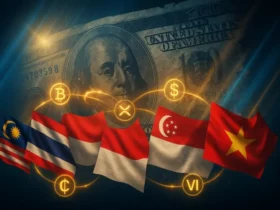
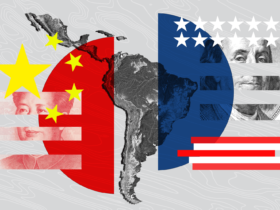


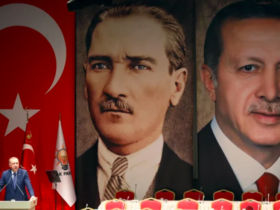
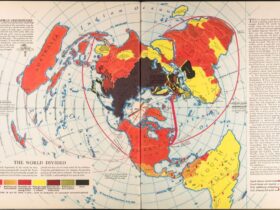
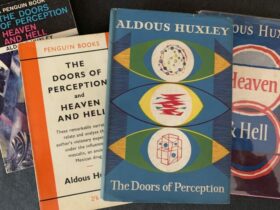
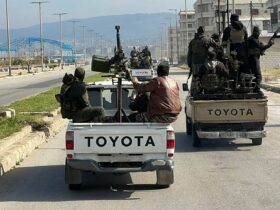

Leave a Reply